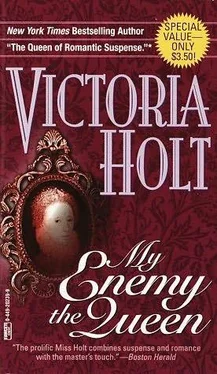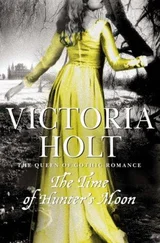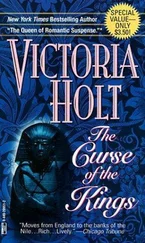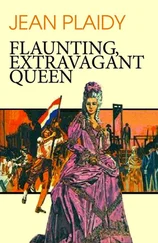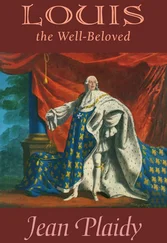Виктория Холт - My Enemy the Queen
Здесь есть возможность читать онлайн «Виктория Холт - My Enemy the Queen» весь текст электронной книги совершенно бесплатно (целиком полную версию без сокращений). В некоторых случаях можно слушать аудио, скачать через торрент в формате fb2 и присутствует краткое содержание. Жанр: Исторические любовные романы, на английском языке. Описание произведения, (предисловие) а так же отзывы посетителей доступны на портале библиотеки ЛибКат.
- Название:My Enemy the Queen
- Автор:
- Жанр:
- Год:неизвестен
- ISBN:нет данных
- Рейтинг книги:5 / 5. Голосов: 1
-
Избранное:Добавить в избранное
- Отзывы:
-
Ваша оценка:
- 100
- 1
- 2
- 3
- 4
- 5
My Enemy the Queen: краткое содержание, описание и аннотация
Предлагаем к чтению аннотацию, описание, краткое содержание или предисловие (зависит от того, что написал сам автор книги «My Enemy the Queen»). Если вы не нашли необходимую информацию о книге — напишите в комментариях, мы постараемся отыскать её.
It was always Lettice, the constant spoiler in the triangle of love surrounding Elizabeth...
My Enemy the Queen — читать онлайн бесплатно полную книгу (весь текст) целиком
Ниже представлен текст книги, разбитый по страницам. Система сохранения места последней прочитанной страницы, позволяет с удобством читать онлайн бесплатно книгу «My Enemy the Queen», без необходимости каждый раз заново искать на чём Вы остановились. Поставьте закладку, и сможете в любой момент перейти на страницу, на которой закончили чтение.
Интервал:
Закладка:
Life went on as usual for a few years while we lived as country gentry do, continuing with our studies. It was a tradition in our family that even daughters of the household must be well educated; special attention was paid to music and dancing; we were taught to play lute and harpsichord, and whenever a new dance was introduced at Court we must try it. Our parents were determined to make us ready in case we should suddenly be called to Court. We used to sing madrigals in the gallery or play our instruments there.
We dined at eleven of the clock in the main hall, and when we had visitors we would sit over our meal until three in the afternoon, listening to the talk which enthralled me, for during young Edward's reign, I was growing up fast and taking a great interest in what was happening outside Rotherfield Greys. Then we would sup at six. There was always a good table and a certain amount of excitement because we could never be sure who would arrive to join us. Like most families of our standing we kept open house, for my father would not have had it thought that we could not afford hospitality. There would be great joints of beef and mutton and meat pies of all kind flavored with herbs from our gardens, venison and fish accompanied by sauces as well as conserves of fruit, marchpane, gingerbread and sugar bread. If anything was left the servants would finish it, and there were always beggars at the gates—that community, my mother was constantly remarking, had increased a thousandfold since King Henry had dissolved the monasteries.
There were celebrations at Christmas when we children amused ourselves by dressing up and performing plays. There was great excitement among us as to which one should find the silver penny in the big cake which was made for Twelfth Night and be King— or Queen—for the day; and innocently we believed it would go on like that forever.
Of course, had we been wise we should have seen the portents. Our parents did, and that was why my father often looked very grave. The King was delicate and if anything should happen to him, the heir to the throne was that Mary whom we feared—and we were not the only ones. The most powerful man in the country shared my father's apprehension. This was John Dudley, Duke of Northumberland, who had made himself virtual ruler of England. If Mary came to the throne it would be the end of Dudley, and as he did not relish spending the rest of his days in prison, nor yet surrendering his head to the ax, he was making plans.
I heard my parents discussing this and it was clear to me that they were very uneasy. My father was essentially a law-abiding man and, try as he might, he could not but accept the fact that the majority of the people would say that Mary was the true heir to the throne. It was an extraordinary situation because if Mary was legitimate, Elizabeth could not be. Mary's mother had been displaced when the King, eager to marry Anne Boleyn, decreed that his marriage of more than twenty years to Catherine of Aragon, was not legal. It was simple logic that if his marriage to Catherine was legal, then his marriage to Anne Boleyn was not, and Anne's child, Elizabeth, a bastard. My family—out of Boleyn loyalty and self-advancement—must of course believe that the King's first marriage was illegal; but because my father was a logical man in most matters, I guessed he had a certain difficulty in preserving his belief in Elizabeth's legitimacy.
He told my mother that he believed Northumberland was going to try to put the Lady Jane Grey on the throne. She had a certain claim, it was true, through her grandmother, Henry VIII's sister, but it was one which few people would accept. The strong Catholic factions throughout the land would stand firmly behind Mary. So it was small wonder that young King Edward's sickness gave my father great misgiving.
He did not, however, put himself oft the side of Northumberland. How could he, married to a Boleyn, support anyone but the Princess Elizabeth? And Elizabeth, as the King's daughter, surely came before Lady Jane Grey. Unfortunately there was Mary—daughter of the Spanish Princess—a fierce Catholic and the King's elder daughter.
Those were days when it was necessary to be watchful. The Duke of Northumberland had staked everything on Jane Grey by marrying her to his son, Lord Guildford Dudley.
That was the state of affairs during the last year of the young King's reign. I was then twelve years old. My sisters and I were more interested in the gossip we heard through the servants, particularly that which concerned our illustrious cousin Elizabeth. Through this we acquired a different image of her from that which our mother had instilled of the scholar of Greek and Latin, a shining example to her less virtuous and less intellectual Knollys cousins.
After the death of King Henry VIII, she had been sent to live with her stepmother, Katharine Parr, at the Dower House in Chelsea, and Katharine Pan had married Thomas Seymour, who was one of the handsomest and most attractive men in England.
"They say," one of the servants told us, "that he has a fancy for the Princess Elizabeth."
I was always interested in what the anonymous "They" said. Quite a lot of it was, of course, conjecture and should perhaps be dismissed as idle gossip, but I think there was often a germ of truth in it. However "They" said that there were exciting "goings on" at the Dower House and that there was some relationship between Elizabeth and her stepmother's husband which was inappropriate to her station as well as her character. He crept into her bedroom and tickled her when she was in bed; she ran screaming with laughter from him, but it was the kind of screaming which was not without an invitation. Once in the garden when Elizabeth was wearing a new silk gown, he, urged on by his wife, took scissors and playfully cut it to shreds.
"Poor Katharine Parr," said "They." Did she know the true nature of these frolics. Of course she must, and to give them that air of respectability which could cover the impropriety of it all, she joined in them.
I liked to think of the scholarly Elizabeth being chased around her bedroom or having her gown slashed to pieces, being tickled by the jovial Seymour with the glint in his eyes while his pregnant wife tried to pretend that the jollity was a family affair.
Then finally Katharine Parr had caught her amorous husband kissing the young Princess in a far from avuncular manner so that even she could no longer pretend, and the result was that Elizabeth left the Dower House. Naturally scandal followed her. "They" were at it again, and a rumor was spread that the Princess had been delivered of a fair young lady who was Thomas Seymour's daughter.
There were stout denials of this and indeed it seemed highly unlikely, but how interesting it was to us girls who had lived in the shadow of her virtues all those years.
It was not long afterwards when Thomas Seymour, involved in ambitious political schemes for his own advancement, was brought to trial and beheaded. Meanwhile the sad little King's health was declining. Dudley induced the dying boy to make a will passing over both Mary and Elizabeth and naming Lady Jane Grey sole heir to the throne. She had by this time married Lord Guildford. I often pondered on that in the days to come. It might so easily have been Guildford's brother Robert who was the chosen bridegroom. Robert, though, had already committed the folly —if so it could be called in view of what happened later—of marrying at the age of seventeen the daughter of Sir John Robsart. He soon tired of her, of course—but that is another story. It often appalled me later to contemplate that, but for Robert's marriage, my life—and Elizabeth Tudor's—would have been drastically different. Robert would certainly have been considered more suitable than Guildford, who was weak and far less handsome, for Robert must have been outstanding even in his youth. Heaven knows he later quickly became the brightest star at Court at the Queen's accession and remained so till his death. However, fate was looking after Robert—as she so often did—and it was poor Guildford, his younger brother, who became the husband of the ill-fated Lady Jane Grey.
Читать дальшеИнтервал:
Закладка:
Похожие книги на «My Enemy the Queen»
Представляем Вашему вниманию похожие книги на «My Enemy the Queen» списком для выбора. Мы отобрали схожую по названию и смыслу литературу в надежде предоставить читателям больше вариантов отыскать новые, интересные, ещё непрочитанные произведения.
Обсуждение, отзывы о книге «My Enemy the Queen» и просто собственные мнения читателей. Оставьте ваши комментарии, напишите, что Вы думаете о произведении, его смысле или главных героях. Укажите что конкретно понравилось, а что нет, и почему Вы так считаете.
